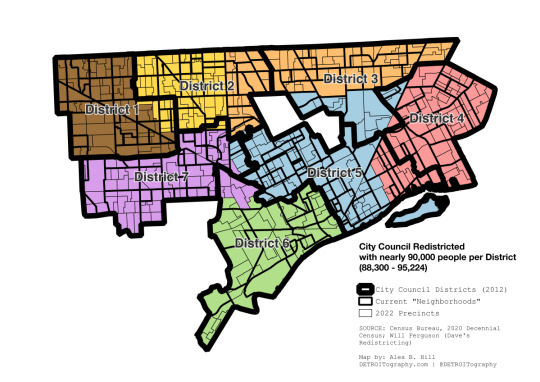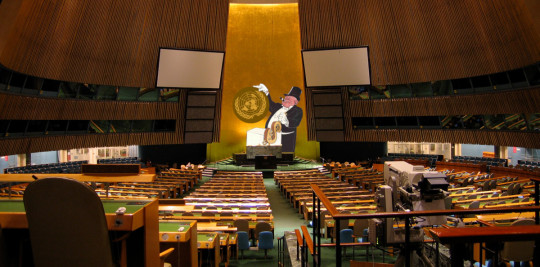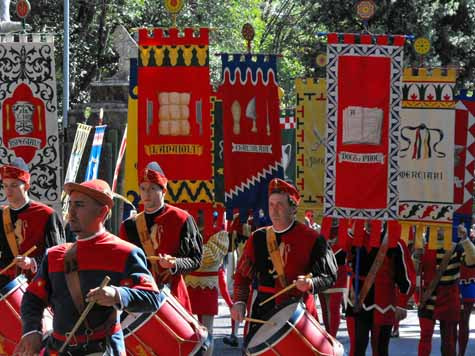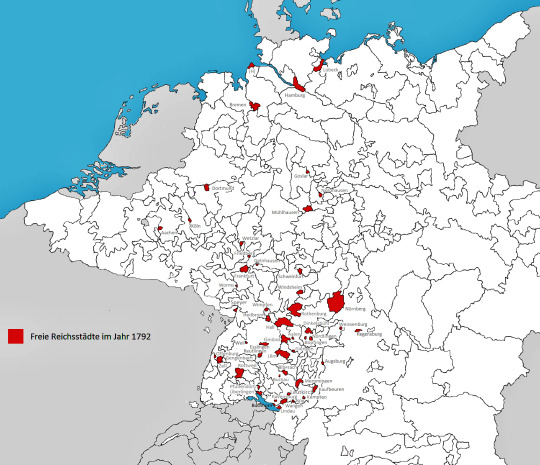#City Charter
Text

Who Ate the Canary?
September 18, 1907
The Ward Politician cat licks its lips; the Charter Cage lies battered and empty.
Minneapolis had just voted on a new city charter, which would end Ward governance, and allow the city to be governed on its own. The charter had failed to pass.
From Hennepin County Library
Original available at: https://digitalcollections.hclib.org/digital/collection/Bart/id/6976/rec/253
#charles bartholomew#political cartoon#minnesota politics#minneapolis#minnesota history#city charter
0 notes
Text
Map: Is it time for Detroit City Council Redistricting?
The short answer is yes, it is time to reassess City Council District boundaries.
The City Charter calls for updated Districts 120 days before the next City primary election. The release of Census 2020 data files gave the City a pass up until now. The 2020 decennial census data was released to State governments for redistricting efforts in August 2021, but the City election in 2021 was already…

View On WordPress
#2020#2022#2023#Alex B. Hill#cartography#City Charter#City Planning Commission#data#Detroit#Detroit Election Commission#election#geography#map#precinct
0 notes
Text
The qualifications to be Santa Clara’s elected police chief aren’t set by the City’s HR professionals or best practices established by policing professionals. The qualifications are set by a 2000 update to the City’s 1952 charter. And those qualifications are minimal. Read complete news at svvoice.com
#hr professionals#qualifications#post#Peace Officer Standards and Training#City Charter#city politics news#svvoice#news updates
0 notes
Text
End of the line for corporate sovereignty

I'm on tour with my new, nationally bestselling novel The Bezzle! Catch me next weekend (Mar 30/31) in ANAHEIM at WONDERCON, then in Boston with Randall "XKCD" Munroe (Apr 11), then Providence (Apr 12), and beyond!

Back in the 1950s, a new, democratically elected Iranian government nationalized foreign oil interests. The UK and the US then backed a coup, deposing the progressive government with one more hospitable to foreign corporations:
https://en.wikipedia.org/wiki/Nationalization_of_the_Iranian_oil_industry
This nasty piece of geopolitical skullduggery led to the mother-of-all-blowbacks: the Anglo-American puppet regime was toppled by the Ayatollah and his cronies, who have led Iran ever since.
For the US and the UK, the lesson was clear: they needed a less kinetic way to ensure that sovereign countries around the world steered clear of policies that undermined the profits of their oil companies and other commercial giants. Thus, the "investor-state dispute settlement" (ISDS) was born.
The modern ISDS was perfected in the 1990s with the Energy Charter Treaty (ECT). The ECT was meant to foam the runway for western corporations seeking to take over ex-Soviet energy facilities, by making those new post-Glasnost governments promise to never pass laws that would undermine foreign companies' profits.
But as Nick Dearden writes for Jacobin, the western companies that pushed the east into the ECT failed to anticipate that ISDSes have their own form of blowback:
https://jacobin.com/2024/03/energy-charter-treaty-climate-change/
When the 2000s rolled around and countries like the Netherlands and Denmark started to pass rules to limit fossil fuels and promote renewables, German coal companies sued the shit out of these governments and forced them to either back off on their democratically negotiated policies, or to pay gigantic settlements to German corporations.
ISDS settlements are truly grotesque: they're not just a matter of buying out existing investments made by foreign companies and refunding them money spent on them. ISDS tribunals routinely order governments to pay foreign corporations all the profits they might have made from those investments.
For example, the UK company Rockhopper went after Italy for limiting offshore drilling in response to mass protests, and took $350m out of the Italian government. Now, Rockhopper only spent $50m on Adriatic oil exploration – the other $300m was to compensate Rockhopper for the profits it might have made if it actually got to pump oil off the Italian coast.
Governments, both left and right, grew steadily more outraged that ISDSes tied the hands of democratically elected lawmakers and subordinated their national sovereignty to corporate sovereignty. By 2023, nine EU countries were ready to pull out of the ECT.
But the ECT had another trick up its sleeve: a 20-year "sunset" clause that bound countries to go on enforcing the ECT's provisions – including ISDS rulings – for two decades after pulling out of the treaty. This prompted European governments to hit on the strategy of a simultaneous, mass withdrawal from the ECT, which would prevent companies registered in any of the ex-ECT countries from suing under the ECT.
It will not surprise you to learn that the UK did not join this pan-European coalition to wriggle out of the ECT. On the one hand, there's the Tories' commitment to markets above all else (as the Trashfuture podcast often points out, the UK government is the only neoliberal state so committed to austerity that it's actually dismantling its own police force). On the other hand, there's Rishi Sunak's planet-immolating promise to "max out North Sea oil."
But as the rest of the world transitions to renewables, different blocs in the UK – from unions to Tory MPs – are realizing that the country's membership in ECT and its fossil fuel commitment is going to make it a world leader in an increasingly irrelevant boondoggle – and so now the UK is also planning to pull out of the ECT.
As Dearden writes, the oil-loving, market-worshipping UK's departure from the ECT means that the whole idea of ISDSes is in danger. After all, some of the world's poorest countries are also fed up to the eyeballs with ISDSes and threatening to leave treaties that impose them.
One country has already pulled out: Honduras. Honduras is home to Prospera, a libertarian autonomous zone on the island of Roatan. Prospera was born after a US-backed drug kingpin named Porfirio Lobo Sosa overthrew the democratic government of Manuel Zelaya in 2009.
The Lobo Sosa regime established a system of special economic zones (known by their Spanish acronym, "ZEDEs"). Foreign investors who established a ZEDE would be exempted from Honduran law, allowing them to create "charter cities" with their own private criminal and civil code and tax system.
This was so extreme that the Honduran supreme court rejected the plan, so Lobo Sosa fired the court and replaced them with cronies who'd back his play.
A group of crypto bros capitalized on this development, using various ruses to establish a ZEDE on the island of Roatan, a largely English-speaking, Afro-Carribean island known for its marine reserve, its SCUBA diving, and its cruise ship port. This "charter city" included every bizarre idea from the long history of doomed "libertarian exit" projects, so ably recounted in Raymond Craib's excellent 2022 book Adventure Capitalism:
https://pluralistic.net/2022/06/14/this-way-to-the-egress/#terra-nullius
Right from the start, Prospera was ill starred. Paul Romer, the Nobel-winning economist most closely associated with the idea of charter cities, disavowed the project. Locals hated it – the tourist shops and restaurants on Roatan all may sport dusty "Bitcoin accepted here" signs, but not one of those shops takes cryptocurrency.
But the real danger to Prospera came from democracy itself. When Xiomara Castro – wife of Manuel Zelaya – was elected president in 2021, she announced an end to the ZEDE program. Prospera countered by suing Honduras under the ISDS provisions of the Central America Free Trade Agreements, seeking $10b, a third of the country's GDP.
In response, President Castro announced her country's departure from CAFTA, and the World Bank's International Centre for Settlement of Investment Disputes:
https://theintercept.com/2024/03/19/honduras-crypto-investors-world-bank-prospera/
An open letter by progressive economists in support of President Castro condemns ISDSes for costing latinamerican countries $30b in corporate compensation, triggered by laws protecting labor rights, vulnerable ecosystems and the climate:
https://progressive.international/wire/2024-03-18-economists-the-era-of-corporate-supremacy-in-the-international-trade-system-is-coming-to-an-end/en
As Ryan Grim writes for The Intercept, the ZEDE law is wildly unpopular with the Honduran people, and Merrick Garland called the Lobo Sosa regime that created it "a narco-state where violent drug traffickers were allowed to operate with virtual impunity":
https://theintercept.com/2024/03/19/honduras-crypto-investors-world-bank-prospera/
The world's worst people are furious and terrified about Honduras's withdrawal from its ISDS. After 60+ years of wrapping democracy in chains to protect corporate profits, the collapse of the corporate kangaroo courts that override democratic laws represents a serious threat to oligarchy.
As Dearden writes, "elsewhere in the world, ISDS cases have been brought specifically on the basis that governments have not done enough to suppress protest movements in the interests of foreign capital."
It's not just poor countries in the global south, either. When Australia passed a plain-packaging law for tobacco, Philip Morris relocated offshore in order to bring an ISDS case against the Australian government in a bid to remove impediments to tobacco sales:
https://isds.bilaterals.org/?philip-morris-vs-australia-isds
And in 2015, the WTO sanctioned the US government for its "dolphin-safe" tuna labeling, arguing that this eroded the profits of corporations that fished for tuna in ways that killed a lot of dolphins:
https://theintercept.com/2015/11/24/wto-ruling-on-dolphin-safe-tuna-labeling-illustrates-supremacy-of-trade-agreements/
In Canada, the Conservative hero Steven Harper entered into the Canada-China Foreign Investment Promotion and Protection Agreement, which banned Canada from passing laws that undermined the profits of Chinese corporations for 31 years (the rule expires in 2045):
https://www.vancouverobserver.com/news/harper-oks-potentially-unconstitutional-china-canada-fipa-deal-coming-force-october-1
Harper's successor, Justin Trudeau, went on to sign the Canada-EU Trade Agreement that Harper negotiated, including its ISDS provisions that let EU corporations override Canadian laws:
https://www.cbc.ca/news/politics/trudeau-eu-parliament-schulz-ceta-1.3415689
There was a time when any challenge to ISDS was a political third rail. Back in 2015, even hinting that ISDSes should be slightly modified would send corporate thinktanks into a frenzy:
https://www.techdirt.com/2015/07/20/eu-proposes-to-reform-corporate-sovereignty-slightly-us-think-tank-goes-into-panic-mode/
But over the years, there's been a growing consensus that nations can only be sovereign if corporations aren't. It's one thing to treat corporations as "persons," but another thing altogether to elevate them above personhood and subordinate entire nations to their whims.
With the world's richest countries pulling out of ISDSes alongside the world's poorest ones, it's feeling like the end of the road for this particularly nasty form of corporate corruption.
And not a moment too soon.

If you'd like an essay-formatted version of this post to read or share, here's a link to it on pluralistic.net, my surveillance-free, ad-free, tracker-free blog:
https://pluralistic.net/2024/03/27/korporate-kangaroo-kourts/#corporate-sovereignty

Image:
ChrisErbach (modified)
https://commons.wikimedia.org/wiki/File:UnitedNations_GeneralAssemblyChamber.jpg
CC BY-SA 3.0
https://creativecommons.org/licenses/by-sa/3.0/deed.en
#pluralistic#isds#investor state dispute settlement#steven harper#canada#canpoli#ukpoli#honduras#prospera#roatan#Energy Charter Treaty#ect#eu#rockhopper#world bank#charter cities#cryptocurrency#libertarian exit#Xiomara Castro
220 notes
·
View notes
Text

Mary Street, Charters Towers City, Queensland.
58 notes
·
View notes
Note
Please tell me more about neighbourhood PMCs in renaissance Italy
It would be my pleasure! (My research into this owes a lot to the excellent Power and Imagination: City-States in Renaissance Italy by Lauro Martines.)

The first thing to note that, unlike the condottieri, these were not private military companies. Rather, the neighborhood military companies (in the sense of a military unit, rather than a profit-making entity) were self-defense organizations formed as part of a centuries-long political struggle for control over the urban commune between the signorile (the urban chivalry)/nobilita (the urban nobility) and the populo (the guilded middle class, who claimed to speak on behalf of "the people").
This conflict followed much the same logic that had given rise to the medieval commune in the first place. Legally, the communes had started as mutual defense pacts between the signorile and the cives (the free citizens of the city) against the rural feudal nobility, which had given these groups the military and political muscle to push out the marquises and viscounts and barons and claim exclusive authority over the tax system, the judicial system, and the military.
So it made sense that, once they had vanquished their enemies and established the commune as the sovereign, both sides would use the same tactic in their struggle over which of them would rule the commune that ruled the city. The signorile and nobilita formed themselves into consorteria or "tower societies," by which ancient families allied with one another (complete with dynastic marriage alliances!) to build and garrison the towers with the knights, squires, men-at-arms, and bravi of their households. These phallic castle substitutes were incredibly formidable within the context of urban warfare, as relatively small numbers of men with crossbows could rain down hell on besiegers from the upper windows and bridges between towers, even as the poor bastards on the ground tried to force the heavy doors down below.

To combat noble domination of communal government, achieve direct representation on the political councils, establish equity of taxation and regulate interest rates, and enforce legal equality between nobility and citizenry, the populo formed themselves into guilds to build alliances between merchants and artisans in the same industries. However, these amateur soldiers struggled to fight on even footing with fully-trained and well-equipped professional soldiers, and the guild militias were frequently defeated.
To solve their military dilemma, the populo engaged in political coalition-building with the oldest units of the urban commune: the neighborhoods. When the cities of medieval Italy were originally founded, they had been rather decentralized transplantations of the rural villages, where before people had any conception of a city-wide collective their primary allegiance was to their neighborhood. As can still be seen in the Palio di Siena to this day, these contrade built a strong identity based on local street gangs, the parish church, their traditional heraldry, and their traditional rivalries with the stronzi in the next contrade over. And whether they were maggiori, minori, or unguilded laborers, everyone in the city was a member of their contrade.

As Martines describes, the populo both recruited from (and borrowed the traditions of) the contrade to form their armed neighborhood companies into a force that would have the manpower, the discipline, and the morale to take on the consorteria:
"Every company had its distinctive banner and every house in the city was administratively under the sign of a company. A dragon, a whip, a serpent, a bull, a bounding horse, a lion, a ladder: these, in different colors and on contrasting fields, were some of the leitmotifs of the twenty different banners. They were emblazoned on individual shields and helmets. Rigorous regulations required guildsmen to keep their arms near at hand, above all in troubled times. The call to arms for the twenty companies was the ringing of a special bell, posted near the main public square. A standard-bearer, flanked by four lieutenants, was in command of each company."
To knit these companies organized by neighborhood into a single cohesive force, the lawyers' guilds within the populo created a state within a state, complete with written constitutions, guild charters, legal codes, legislative and executive councils. Under these constitutions, the populo's councils would elect a capitano del popolo, a professional soldier from outside the city who would serve as a politically-neutral commander, with a direct chain of command over the gonfaloniere and lieutenants of the neighborhood companies, to lead the populo against their noble would-be overlords.
And in commune after commune, the neighborhood companies made war against the consorteria, taking the towers one by one and turning them into fortresses of the populo. The victorious guilds turned their newly-won military might into political hegemony over the commune, stripping the nobilita of their power and privilege and forcing them either into submission or exile. Then they directed their veteran neighborhood companies outward to seize control of the rural hinterland from the feudal aristocracy, until the city had become city-state.
(Ironically, in the process, the populo gave birth to the condottieri, as the nobility who had lost their landed wealth and political power took their one remaining asset - their military training and equipment - and became professional mercenaries. But that's a story for another time...)
#history#historical analysis#renaissance history#renaissance fantasy#medieval cities#city-states#urban communes#guilds#city charters#guild charters#mercenaries#nobility#artisans#burgher rights#merchants
146 notes
·
View notes
Text
Kiera Butler at Mother Jones:
Earlier this month, former President Donald Trump held his first campaign rally as a convicted felon at Dream City Church in Phoenix, Arizona, hosted by the arch-conservative student group Turning Point USA. This wasn’t Trump’s first appearance at Dream City Church; he also held a rally there with Turning Point USA in 2020. For events like this, it’s an ideal venue: A weekly attendance of around 21,000 believers makes this one of the largest churches not just in Arizona but in the nation.
Dream City, which didn’t respond to my questions for this story, is a mecca for special guests who blur the line between religion and politics. Its annual conference has featured notables like musician and pastor Sean Feucht, who participated in a White House prayer session for President Trump in 2019 and is currently leading a tour of prayer rallies at state capitol buildings across the country. The lineup for this year’s event also included David Barton, whose organization, WallBuilders, teaches K-12 students about the supposed Christian origins of America; Jürgen Mathesius, a pastor at San Diego’s far-right Awaken Church, which has become a stop on Mike Flynn’s ReAwaken America tour; and Jentezen Franklin, a televangelist who also spoke at the 2022 Pray Vote Stand Summit, which mobilizes conservative Christian voters to engage in political activism.
In addition to its thrumming weekly worship sessions and its blockbuster events, the church has another project: Dream City Christian Academy. The K-12 private school, which serves nearly 800 students, is part of Turning Point USA’s Turning Point Academy program, a network of 41 schools that describes itself as “an educational movement that exists to glorify God and preserve the founding principles of the United States through influencing and inspiring the formation of the next generation.” Dream City Christian Academy promises to “Protect our campus from the infiltration of unethical agendas by rejecting all ‘woke’ and untruthful ideologies being pushed on students.”
This politically charged approach to education likely isn’t for everyone—and because it’s a private school, it doesn’t have to be. Except for one thing: Dream City Christian Academy is one of a growing number of religious schools that are supported by public funds.
In 2022, Arizona became the first state in which all students are allowed to use state vouchers to cover a portion of tuition at any private school, secular or religious. Through Empowerment Scholarship Accounts, each participating family receives about 90 percent of the money the state would have spent on the child’s public school education—around $7,000 per student per year—for private school tuition. For the 2024-2025 school year, the Dream City Christian Academy annual tuition ranges from $10,450 in elementary school to $13,999 in high school—so families of the school’s nearly 800 students can use state funds to pay for between half and two-thirds of their tuition bill. Dream City Christian Academy received almost $1 million in tuition voucher money last year, the Arizona Republic recently reported.
Since Arizona passed its universal voucher law, 10 more states have followed suit. According to an analysis by Education Week, 29 states currently have programs that provide such assistance to a variety of different students many of whom attend local public schools that perform poorly. It also targets those with a disability that requires specialized education and those whose families earn significantly less than the federal poverty level. More programs are in the works: Lawmakers in both Louisiana and South Carolina recently advanced bills that would create programs like Arizona’s that are open to all students. When state funds are available for private school choice programs, a recent Washington Post analysis found that religious schools receive upwards of 90 percent of that money.
[...]
A prerequisite for students and their families to attend some of the schools that currently receive voucher money is that they accept Jesus Christ as their lord and savior. In March, the education blog Notes from the Chalkboard highlighted one such school. Students attending North Carolina’s Daniel Christian Academy, are trained to “enter the Seven Mountains of Influence,” a main tenet of a Christian Nationalist movement known as the New Apostolic Reformation. Its adherents believe that the faithful are called to seek Christian control of the “seven mountains” of society: family, education, media, government, business, arts & entertainment, and religion. Many New Apostolic Reformation followers believe that waging “spiritual warfare” is justified in achieving these goals, though Daniel Christian Academy specifies that its endorsement of the Seven Mountains Mandate “in no way includes violence or manipulation at any level.”
Americans United for Separation of Church and State’s Laser worries that the proliferation of private school voucher programs will open the door to even more permissive rules around the use of public education dollars to teach religion. She points to a suite of bills that would allow public schools to employ chaplains, and even more remarkably, to an Oklahoma Catholic school called St. Isidore of Seville, which is set to become the nation’s first Christian public charter school this fall. The overarching goal of these initiatives, she says, is to “bestow a power and privilege on Christians in our country, at the expense of all the other religions in America.” Meanwhile, public education is robbed “of the funding that it’s entitled to.”
Mother Jones reports on the disturbing trend of Christian Nationalists opening taxpayer-funded private schools with the intention to indoctrinate students with right-wing politics and a Christian Nationalist worldview.
#Christian Nationalism#Religious Education#Indoctrination#Dream City Church#Dream City Christian Academy#Turning Point USA#Jürgen Mathesius#Turning Point Academy#ReAwaken America Tour#Sean Feucht#David Barton#School Vouchers#Charter Schools#Consider Christos Academy#Daniel Christian Academy#Seven Mountains Dominionism#Private Schools#St. Isidore of Seville Catholic Virtual School
27 notes
·
View notes
Text

Chapter 13: A Much-Needed Respite
Theresa is feeling the stress of recent events more than usual, and Cullen convinces her to spend some time at the bath house to recuperate. While there, she's confronted with a revelation she's unprepared for.
Charter nods, already onto the next item. “Sutherland’s reported back.”
Theresa’s heart skips. For a report to come in all the way from Skyhold that quickly… That was either very good, or very bad. Judging by Charter’s face, she’s not optimistic.
But she’s not prepared for her answer. “It was a demon of Regret.”
Theresa’s whole body grows cold, despite the languishing heat. Regret! Oh Solas… “How much damage did it do?”
“A lot,” Charter answers flatly. “It slaughtered the caretakers who refused to evacuate with the Tranquil, but thankfully there were no other casualties. None of Sutherland’s crew were killed, either.”
Alive, but not unharmed. Theresa allows herself a moment’s sorrow for the loss of life. Still, it could have been much worse. Regret is relentless, and its roots go deep. “Does Leliana know?”
Again, Charter nods. “And she wanted me to warn you…”
“She’s closing it off.” Theresa swallows past the sudden lump in her throat.
“I’m sorry, Inquisitor.”
“Don’t be. It’s the right call.” She shakes her head, feeling her hair sway with the motion, frizzed and weighted by the humidity. I’ll have to find somewhere new for the Tranquil to go.
It had been a beautiful dream, but all dreams must eventually end. A lesson Solas also must come to learn.
But this raises a new problem. “Skyhold’s loss will look like a weakness to those watching from the outside,” she says carefully.
“Yes,” Charter agrees. “Sister Nightingale said she’d keep it quiet for as long as possible, but she’s also stirring the pot within the Chantry. There are a lot of daggers pointed at her back at the moment.”
“Stirring the pot” likely means dropping some rage bait into local discourse, and seeing who rises to bite. Theresa guesses there will be a new controversial edict issued by Divine Victoria in the next few days. Leliana is not one to mitigate risk. And if any of those daggers slip past her defences…
“I understand.” Theresa keeps her eyes on Charter, though her attention is trained keenly on Rosalie.
DAFF tag list: @rakshadow, @rosella-writes, @effelants, @bluewren, @breninarthur, @ar-lath-ma-cully, @dreadfutures, @ir0n-angel, @inquisimer, @crackinglamb, @theluckywizard, @nirikeehan, @oxygenforthewicked, @exalted-dawn-drabbles, @melisusthewee, @blarrghe, @agentkatie, @delicatefade, @leggywillow, @about2dance
#my writing#the black city#while time remains#wtr: tbc#theresa trevelyan#cullen rutherford#rosalie rutherford#charter dragon age#post-trespasser#cullen x theresa#cullen x trevelyan#dragon age fanfiction
16 notes
·
View notes
Text


Lele Park
#cyberpunk 2077#virtual photography#environmental shots#night city streets#lele park#charter hill#console shots
35 notes
·
View notes
Text

sometimes i forget that vitali really is a heywood boy
#personal#like of course he is. he may have ended up a corpo boy but deep down he is nothing like that#he used to go out to smoke with friends in places they weren't supposed to be#got into so many fights when he was young and he was a boxer like jackie... they trained with viktor for a long time together#when vitali was in college. and it's always been about community and connection to him#even now as a fixer he's putting his resources towards his mercenaries and their families#and to the fixer council so they can use the collective income to keep streets safe for regular residents of night city#he's got a whole program running to support businesses that are trying to make heywood more accessible to those without a car#and organizations focused on making life in night city better for children specifically so they have safe places to hang out with friends#if he was really a corpo boy he would've set up his office in city center somewhere. or like. charter hill#would've barely cared about his mercenaries and would DEFINITELY not have helped with creating the fixer council#none of his mercenaries have died. like obviously people get injured but none of them have ever died and like#it's all because he makes sure that they have all the resources and gear they need to succeed at the gigs he gives them#which makes me so insane he cares so much and he's running his business SO professionally but in like. such a human way#like yeah his skills as a corpo come in super handy for what he's doing here and he's absolutely using them to his advantage#but that's all he's using them for. corpo boy on the surface but lover at heart
4 notes
·
View notes
Text

Of Course He'll Do It
September 15, 1907
The young man Voter helps Minneapolis set up the New Charter oven range. The State House Bakery stands in the distance.
The caption reads "Minne - 'Come and set up the new charter range and we can have home-cooking instead of going to the St. Paul bakery for everything'."
A new city charter would soon be voted on in Minneapolis, to determine if the city could determine its own laws, or would follow state laws.
From Hennepin County Library
Original available at: https://digitalcollections.hclib.org/digital/collection/Bart/id/5713/rec/250
#charles bartholomew#political cartoon#minnesota politics#minneapolis#minnesota history#city charter#voting
0 notes
Text
Not sure if this has been brought up before, but I don’t think that there’s that significant of a secret behind the mural man. LIke? Apparently the political figures of Vinyl City are determined not by public voting (alone) or running for candidacy, but through the Lights Up competition for a combination of 1) completing the arena, 2) ‘lighting up’ the stage as the competition implies, and 3) passing the final vote from the NSRtists and the Head. If there was only 5 musicians and a head with NO vacancies, why would any of the Charters vote ‘yes’ to the contestant/s if there’s a risk in getting replaced?
I would think that the mural man filled in that 6th artist slot present even on DJ Subatomic Supernova’s satellite, and I suppose the mystery then would be if their absence was either through retiring, quitting or simply the end of their term as a Charter. Like, instead of an election season or whatever, Vinyl City holds Lights Up Auditions during a set period during that 6th Charter’s crossover or something; on the satellite again, it’s not as if we see the mural man’s name in 6th (we see Bunk Bed Junction’s), maybe they’re already gone or are archiving stuff from their district. Does Tatiana temporarily hold ‘charter’ to the district? Does she hold the platinum disc until a new position is filled? Is Festival Plaza that district that once had mural man as a Charter? Do you think with the Rock Revolution and the subsequent approval of indie bands that the position was left empty or even completely abolished?
idk, lmao-
#mural man#no straight roads#nsr#i mean i could be completely wrong on 1) this being a thing that's been mentioned and 2) clearly not knowing the mystery enough#i mean i played the game back in 2020 and only noticed it playing it again this year 2023 so lmao#a little bit blinded by the tatiana fight because i cannot carry a rhythm for my life and only like idk... sometime recent#that i got the achievement for 'don't get knocked out idiot' lmao#but like i just wanted to think about the politics (even if surface level) of vinyl city lmao- it's just so odd#take out the music part of their political system and you've essentially got idk a talent show arena election system#without that extra slot of ambivalent 'i'm retiring/quitting/ending my term' charter seat#it's like 'who hasn't met the standards of chartering their own district'
17 notes
·
View notes
Text
i'm genuinely filled with a sense of despair bc work starts back up tomorrow and i just do not want to go. i want to run away. i want to go awol.
#i can't put it into words bc like#i'm applying for jobs at other schools but bc of the way the system is set up i feel like i'm fucked for life#bc 3/4 jobs are for charter schools and the rest will need to somehow match my qualifications#like. i can't apply for other subjects than my own#so it's like. barely an ad per month and i'm not the only person applying#i live in a pretty big city#and it's just. fucked.#maybe if i wash my hair i'll feel 10% better ✌🏽🤪#i think i'm also pms-ing this week so like. that's fun#i don't want to see a single one of my coworkers. they're fine but there's no one there that i want to see or talk to#and i miss my last workplace bc i wanted to see most of the people working there
3 notes
·
View notes
Text
The Block, The Street, and The Building Charter Principle 26

#new urbanism#urbanism#design#urban design#walkability#cities#walkable#charter#buildings#location#weather#resources
5 notes
·
View notes
Text
soooooo .... dates .
#musings#ITS MARCH 4TH !\#massachusetts bay colony got granted its royal charter!! chicago becomes a city@#JOHN ADAMS BECOMES THE 2ND PRESIDENT!#zachary taylor and millard fillmore did not take their oaths of office leading to a rumor that david rice atchison acted as president for a#day. he did not lol.#mckinely gets inaugurated a second time! fdr is the last president to be inaugurated on march 4th!#MALCOLM DOLE BIRTHDAYY
7 notes
·
View notes
Note
Hi, I have a question regarding charter cities in ASOIAF. If I understood correctly, a charter city is a city that can engage in international trade and is self-governed, with the citzens electing their officials instead of being governed by a feudal lord, among other rights. However, in Westeros there are cities, such as Oldtown, Lannisport, White Harbor, Gulltown and King's Landing , that engage in international trade but are ruled by noblemen. Did I understand something wrong?
You've identified two of the big rights - international trade and self-government - that city charters granted, but there were other important elements: burgher (or borough) rights for its citizens, warehousing rights for domestic as well as international trade, the right to erect city walls, market rights, and so forth.
However, when it comes to self-governance, two things are simultaneously true. First, GRRM does not write about city councils, municipal courts, and other evidence of self-governance and instead describes cities as directly governed by noble houses (who control the city watch militias, crucially), albeit with the presence of guilds. Partially I think this is due to a desire to simplify his storytelling, since he's mostly writing about a feudal world, and partially I think GRRM is drawing from older historiography and historical fiction that emphasized more of a "great man" theory of history and pre-dated the "new social history" of the 1960s.
Second, it is also true that the self-governance of chartered cities was often not an absolute. Outside of Italian city-states that were their own independent republics, you had lots of chartered cities that combined local self-governance (especially in internal matters) with some form of incorporation into feudal structures. Often this took the form of the city being a direct vassal of the monarch - thus the City of London gets its charter from the King of England and doesn't owe homage to the lords of Middlesex, Essex, Surrey, Kent, or Hertfordshire.

Likewise, if you were a Freie und Reichsstädte (Free Imperial City) of the Holy Roman Empire, you were subordinate only to the Emperor, unlike the Landstadt (territorial city) who owed homage to their Prince-Bishop or Herzog or Margrave or Graf. However, both in England and the HRE, the charter structured and limited this vassalage in both material and symbolic terms. (Imagine how complicated it could get when a city was simultaneously a vassal of the Holy Roman Emperor and a member of the Hanseatic League along with other cities that were part of the Kingdom of Denmark etc.) Hence why the English monarch still has to ask permission from the Lord Mayor in order to enter the City of London, or why you had Prince-Bishops who were legally barred from entering the cities they ruled.
This mixed governance structure often came with some form of representation in a national assembly - towns and cities with borough rights sent burgesses to the English Parliament alongside the knights of the counties, and in the Holy Roman Empire Imperial Cities were represented in the Imperial Diet along with the Electors and secular and ecclesiastical princes.
GRRM also neglects this part of medieval history: we don't see King's Landing or Oldtown or White Harbor or Gulltown sending their own representatives to the Great Councils, for example.
44 notes
·
View notes